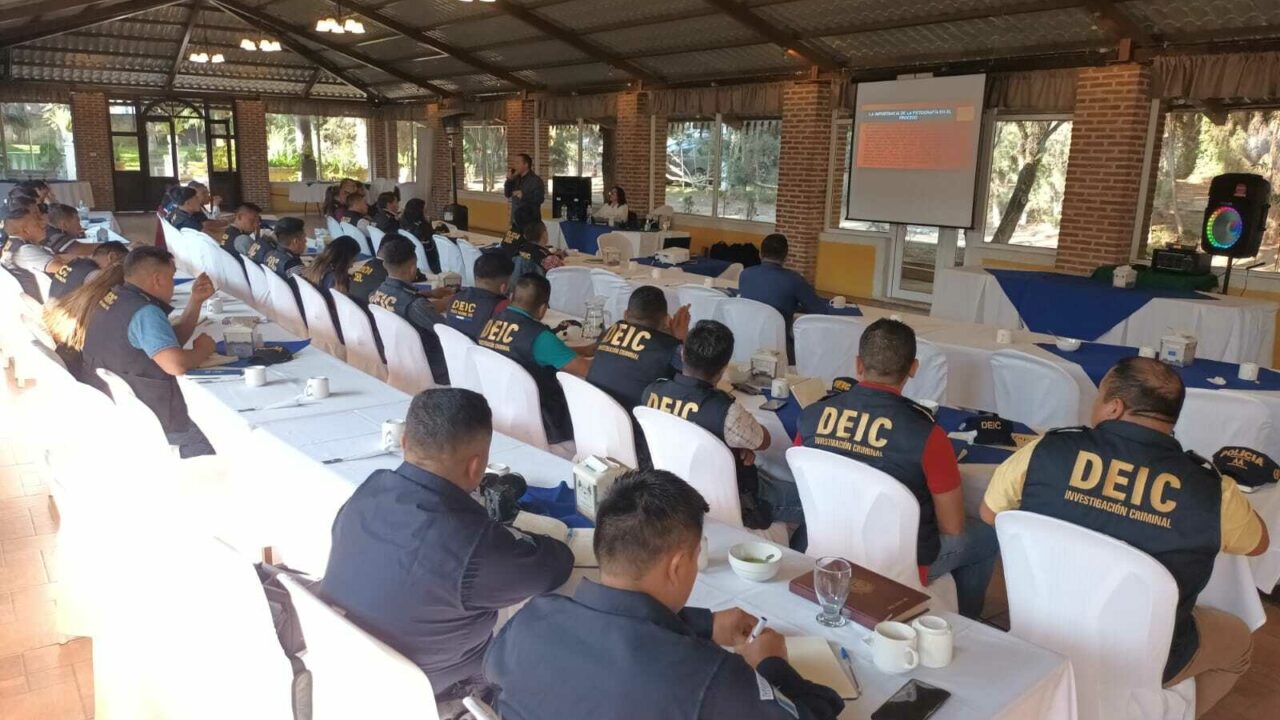IJM Equips Guatemalan Investigators with Training on Photo and Video Evidence Collection
Sexual Violence
Part of IJM's method for addressing regions with high levels of violence is to train and equip public justice system officials. In Guatemala, over 220 investigators were taught how to gather evidence for investigations of sexual crimes against women and children. Their strengthened ability to properly gather photos and videos will be critical to establishing and winning cases.
During the month of February, over 220 members of the National Police Specialized Division of Criminal Investigations learned photography and videography techniques applicable to criminal investigations of sexual violence against women and children.
The four groups of participants are investigators from the Escuintla and Quetzaltenango regions. Quetzaltenango has been historically struck by high rates of violence, particularly sexual abuse of women and children. A 2023 IJM study has found that 37% of women and 28% of adolescents in Guatemala have suffered either physical or sexual violence at some point in their lives.
These alarming numbers call for initiatives that improve the capabilities of the Public Justice System to handle complaints. Based on IJM´s real-world experience around the globe, when justice systems are strengthened, three things happen:
- The justice system does not get overwhelmed with piled up cases
- Victims and survivors receive justice
- As more perpetrators are restrained, community members trust in the justice system and feel encouraged to report crimes
Part of IJM´s methodology to address violence in communities around the world involves training public justice officials on strategies and initiatives that both help protect victims of violence and care for the care giver. When this happens, the volume of individual cases passing through police, prosecutors, judges, and social workers is addressed efficiently.
This three-day training equipped the participants with better techniques to do their job, including how to use equipment to collect evidence deemed critical to investigate sexual crimes. Since around 95% of the participants had never used professional video or photography equipment before, on the first day, they learned how to use capabilities available in their own cellphones. On the last day, the investigators used professional photo and video cameras.
The participants showed their gratitude for the training. One investigator who specializes in femicide shared: “I am very thankful and happy for this training that International Justice Mission brought to us today. We learned very important topics that we, as investigators, need to know. Among all the topics, the one that I enjoyed learning the most was that photography and videography are used as key evidence for the legal process. The sessions have been great, and I thank IJM and the Civil National Police for coordinating this training that is so important for us because it helps us do our job more efficiently.”
A professor of the National Police Academy shared, “With the training that I have received today, I can now go and replicate it both with my students and with other police investigators at the national level. I am very thankful to IJM!”
A third investigator also expressed: “I feel very satisfied with this training as I have acquired new knowledge that I will use during hearings, and other instances in which investigators participate as analysts. The knowledge I have gained is very important because it is scientific evidence to be used by a judge. I am very thankful to International Justice Mission for bringing this training. We hope it can be extended to other colleagues within the National Police institution, because these are tools that help us improve our capabilities, and ultimately, they help solve cases.”
In addition to the training, and as part of the efforts to scale protection for women and children throughout the Guatemalan territory, IJM is donating eight video cameras and eight photo cameras to police stations located in Quetzaltenango and Escuintla.